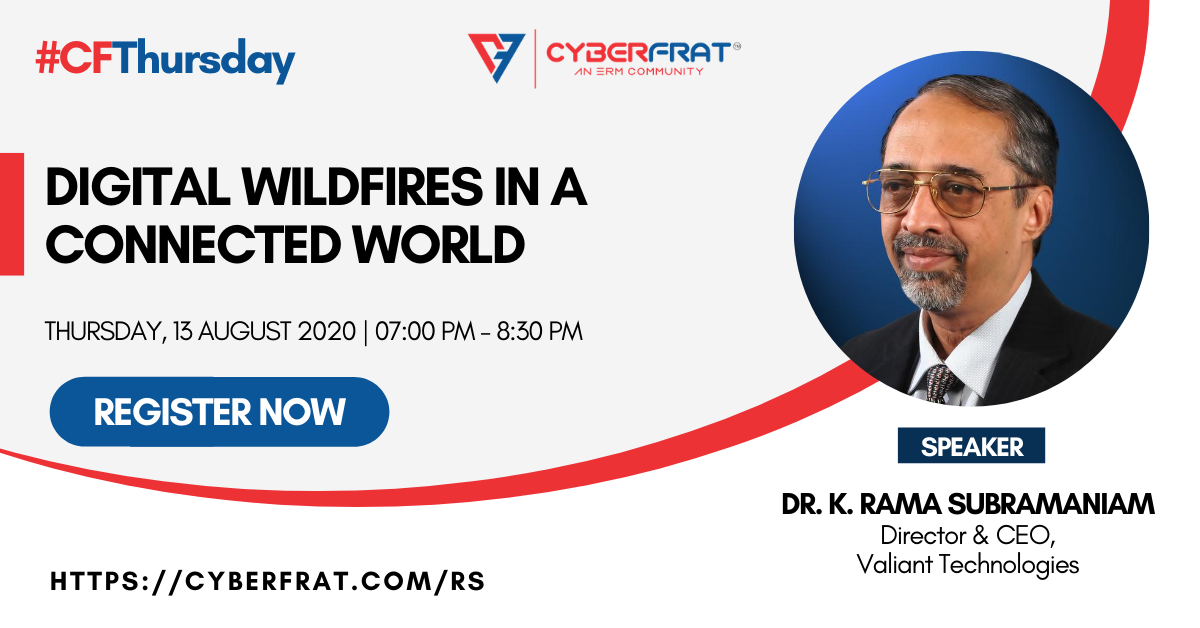
Thursday, 13 August 2020 | 07:00 PM – 8:30 PM
Fact check of a tweet by US President Trump creates friction between Twitter and White House; Vietnam imposes a fine on its citizens who propagate false news on the social media; Mauritius arrests a person for posting harmful content on the social media… these and more related news are recent headlines. All these points to digital wildfires, which are broadly defined as ‘social media events in which provocative content spreads rapidly and broadly and causes harm.’
A Global Risk Report by World Economic Forum warns how hyper-connectivity can create “digital wildfires” that can have devastating consequences. The key question that deserves attention is whether these digital wildfires necessitate urgent creation and adoption of a new governance structure for social media. Alongside this, another key question to be addressed is whether such a governance structure will result in impairment of freedom of speech.
This presentation will consider the current state of digital wildfires supported by case studies and examine features of the current social media governance structure. The fact that various social media stakeholders have different positions in relation to digital wildfires needs consideration while evolving controls over digital wildfires. As we see it today, digital wildfires are subject to four forms of governance viz., legal governance, media governance, institutional governance, and user self-governance. Will these sufficiently govern the complex risk of digital wildfires of tomorrow? Are there ways to spot digital wildfires or potential wildfires? What can and should we do to stop digital wildfires? These are some of the issues to be considered in the presentation.
About the Speaker

Dr. K. Rama Subramaniam
Director & CEO,
Valiant Technologies Group
Group CEO of Valiant Technologies Group operating from India, UAE, and Mauritius. He is former Chairman of the board of Trustees of Center of Excellence in Digital Forensics (India) and current Global Chair, for the fifth consecutive term, at International Institute of Certified Forensic Investigation Professionals, USA.
He served for three terms as India’s country representative at the International Federation for Information Processing (IFIP-TC11). He served earlier as Global Chair of the E&A Committee of the GAISP (Generally Accepted Information Security Principles) initiative in the US.
He served as Adjunct Professor at the University of Madras and at the University of Dubai teaching a Master’s program at both Universities.
He has a multi-disciplinary doctorate in the area of cyber-criminology from the University of Madras (India); a Masters degree (with Distinction) in Technology Management from the University of Lincoln (UK) and a Masters degree in Law (with Honours) from the University of Salford (UK). He holds FCA, CISA, CISM, CDPSE, CISSP, and DFIP credentials and honorary fellowships – FISC and FCFIP. He is the founder President of ISC2 Chennai Chapter and had served earlier on the Boards of ISACA Chapters in Chennai, Bangalore, and Dubai. He currently serves as co-Chair of Expert committee on IT/ITES of the Madras Chamber of Commerce and Industry.

Notifications